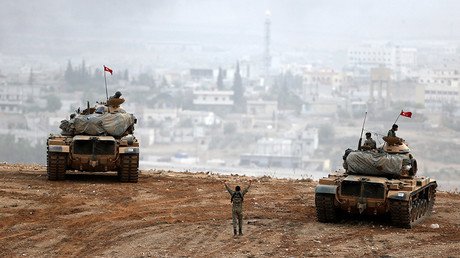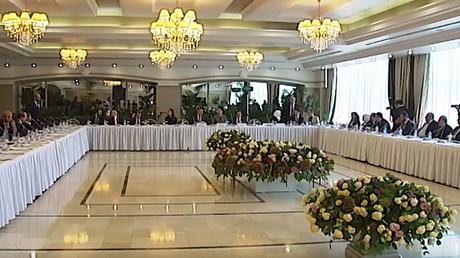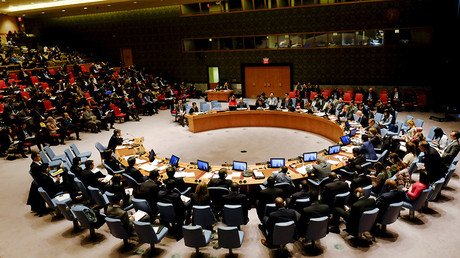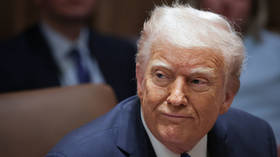No terrorists at the table? Turkey ‘threatens to withdraw’ from Syria talks over Syrian Kurds
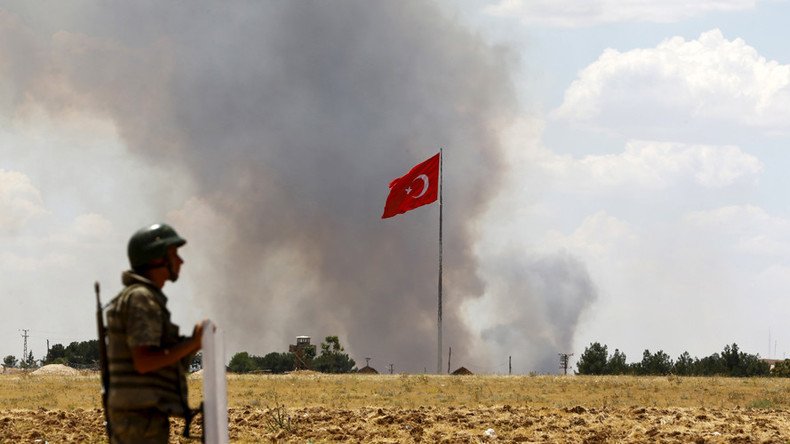
Ankara may boycott the upcoming Syria talks in Switzerland if Syrian Kurds are invited, media reports said, citing UN sources. Earlier, Turkey said their support for the peace process can only be ensured if there is no “representation of terrorist groups around the table.”
Turkey has privately warned that it might pull out from the Geneva talks now scheduled for January 25 if Saudi-backed Kurds and related parties are present, Foreign Policy reported Saturday citing UN-based officials.
Ankara is unwilling to cooperate with Syria’s Democratic Union Party (PYD) and its affiliate People’s Protection Units (YPG) since these leftist movements are allegedly linked to the Kurdistan Workers’ Party (PKK), which is considered a terrorist organization by Turkey.
The conflict between the Turkish government and Kurdish insurgent groups demanding greater autonomy for the large ethnic group has been going on for decades. With several failed ceasefires between the sides, Ankara has been blamed for putting civilians lives in Turkey's mainly Kurdish southeast at risk by a number of international human rights groups.
READ MORE: Turkish security op, curfew in Kurdish areas puts 200,000 people at risk – Amnesty Intl.
Earlier this week, President Erdogan reaffirmed his unwillingness to search for a peaceful solution to the conflict, saying that "those with guns in their hands and those who support them will pay the price of treason," meaning the Kurdish militants who are considered terrorists by the government.
Apart from Turkey, the historical Kurdistan region also includes territories in Iran, Iraq and northern Syria, where Kurdish fighters have proved to be some of the most effective forces in helping to combat Islamic State (IS, formerly ISIS/ISIL). Still Ankara believes that struggling against IS "does not grant them legitimacy," according to the Turkish Prime Minister Ahmet Davutoglu. Turkey has carried out several attacks on Kurdish forces in northern Syria.
Moreover, Davutoglu accused Russia of as much as compromising Geneva talks by inviting the representatives of YPG – Syrian Kurdish forces – to join the peace process.
"Some circles, including Russia, want to spoil the opposition side, putting some other elements in the opposition side like the YPG, which has been collaborating with the regime and attacking the moderate opposition," the PM said earlier this week.
"There should not be any representation of terrorist groups around the table," he insisted.
Geneva talks on the Syrian crisis have recently become a bone of contention between international negotiators: the key issue is who would attend.
A resolution providing for the beginning of talks between the Syrian government and opposition groups was adopted by the UN Security Council in December. Scheduled to take place in Switzerland in January, the talks became known as Geneva III (Geneva II happened in January 2014), and are aimed at finding solution to end the Syrian civil war, which has been ongoing in the country since 2011, with IS gaining strength in the region. While a number of countries, including Russia, the US, Saudi Arabia, Iran and Turkey are backing the peace talks, there is no apparent agreement on who should represent the Syrian opposition, and which fighting groups should be excluded for being proclaimed "terrorists."
Turkey wouldn’t welcome a Kurdish presence at the talks. However, the US government still believes there is hope of changing Ankara’s opinion on the subject, according to Foreign Policy. Vice President Joe Biden arrived in Istanbul to discuss national security questions with the Turkish leaders on Saturday.
At the same time, US State Secretary John Kerry traveled to Riyadh in order to press Saudi officials to reconsider on a similar matter. Saudi Arabia previously threatened to boycott Geneva talks if certain pro-regime Syrian groups allegedly backed by Russia and Egypt were invited. In their turn, the opposition representatives urged UN special envoy Staffan de Mistura in a letter to disqualify Riyadh from peace talks as it was picking delegates for its own delegation talks “under obscure conditions,” Russia’s Sputnik agency reported.
As a result, de Mistura, responsible for issuing the invitations to the talks, accused a few states of jeopardizing the peace process by insisting that their opposing faction is more important than others.
“I would expect all sides to recognize my mandated responsibility to finalize a list of invitees to the process, to include all those I deem appropriate,” de Mistura reportedly said at a private UN briefing on January 18.
Russia and the US still hope that the talks will eventually take place on January 25. Foreign Minister Sergey Lavrov and State Secretary John Kerry had a phone talk on Saturday to discuss arrangements for the Geneva meeting, Russian foreign authority said. Both officials agreed that the International Syria Support Group format might be useful for holding further peace talks on Syria.
